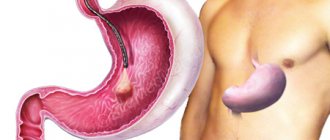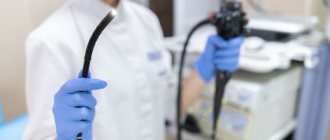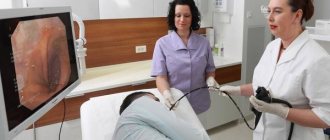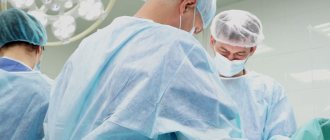Hospitalization (the patient's stay in the hospital) usually consists of three main stages. During the first (preoperative) stage, the necessary studies are performed to prepare for the operation, consultations with specialists, as well as preparatory treatment (special nutrition, treatment of concomitant diseases). The second stage is surgery. And the third (postoperative) stage is recovery after surgery and discharge home.
The length of a patient’s stay in the clinic depends on the type of disease and its severity, the number of necessary examinations, the type of operation, as well as the course of the postoperative period.
Due to the desire of clinics to reduce the costs associated with hospital stays in the preoperative period, there is currently a tendency to perform many examinations on an outpatient basis. This means that before surgery, the patient comes to the clinic only to perform prescribed tests, and then returns home. After all the studies have been completed, the doctor sets the day of the operation, and the patient is hospitalized at the clinic the day before (1-2 days before the scheduled date). In many European countries and the United States, patients scheduled for surgery arrive at the clinic early in the morning on the day of surgery, undergo a short preparation in a special preoperative ward, and are sent to the operating room 2-3 hours later. Keeping the patient at home with loved ones until the day of surgery can reduce the stress associated with the need for surgery.
Preoperative examination
Once a patient is suspected of having colon cancer and surgery is planned, there are several other important tests that need to be done before surgery.
This survey has two main objectives. First, by performing several studies, the stage of the tumor and its extent can be determined. Determining the stage of the tumor in the preoperative period will help you choose the right treatment tactics. Obviously, treatment for colon cancer that has metastasized to the liver will be very different from treatment for a small tumor that does not extend beyond the intestinal wall. Secondly, additional studies will help evaluate overall health and tolerability of surgery. Since surgery is extremely stressful for the body and can worsen existing problems with the lungs, heart, kidneys and other organs, special testing will help identify those patients who are at increased risk for complications in these organs during and after surgery.
Chest X-ray. The main purpose of this study is to evaluate the presence of cancer metastases to the lungs. This is a standard test that can determine with fairly high accuracy whether there are tumor nodes in the lungs. Chest X-rays can also look for signs of heart and lung disease. Therefore, this study is performed routinely in all patients before major operations.
Computed tomography (CT) of the abdomen and chest. Using this study, you can evaluate the condition of the liver and abdominal cavity for the presence of foci of tumor metastasis. If a chest CT scan is performed along with an abdominal examination, then a plain chest x-ray is not required.
Magnetic resonance imaging (MRI) of the pelvis. This study allows you to obtain clear images of the pelvic organs, assess the extent of spread of the rectal tumor, damage to the lymph nodes, and involvement of the anal canal muscles in the tumor. Unlike radiography and CT, MRI does not expose patients to ionizing radiation.
Positron emission tomography (PET). This type of examination uses a contrast agent containing a radioactive form of glucose, which helps determine the location in the human body where the tumor is located. Although this method can accurately identify “occult” tumor metastases that cannot be detected using CT or MRI, PET is currently not the method of choice for the preoperative evaluation of patients with colorectal cancer.
Ultrasound examination (ultrasound) of the abdominal cavity. Using this method, you can determine the condition of almost all abdominal organs and suspect the presence of tumor metastases in other organs, most often in the liver. You can also evaluate the condition of the kidneys, pancreas, and gallbladder. If it is not possible to perform a CT scan of the abdominal cavity, this study is the method of choice for assessing the presence or absence of distant metastases.
Transrectal ultrasound (TRUS). This study is performed using a special sensor, which is inserted into the rectum through the anal canal. This method allows you to identify the degree of tumor invasion of the rectal wall, assess the condition of nearby lymph nodes and rectal sphincters. If it is not possible to perform an MRI of the pelvic organs, it is the method of choice for assessing the spread of a rectal tumor.
Blood tests. A standard set of blood tests includes: a complete blood count, a biochemical blood test and a blood clotting test.
A complete blood count evaluates the total number of red blood cells (red blood cells), hemoglobin, leukocytes (white blood cells), and platelets. These cells play a crucial role in the functioning of the body. Red blood cells, with the help of the hemoglobin they contain, are an oxygen carrier and are responsible for supplying oxygen to all tissues and organs. In colorectal cancer, bleeding may occur from the tumor, so the number of red blood cells in such patients may be reduced. In severe cases, a blood transfusion may be required after surgery, and sometimes before surgery. Because platelets play an important role in normal blood clotting (blood clotting), counting these blood cells is a necessary test. If the patient has not had any episodes of abnormal bleeding in their lifetime, such as heavy nosebleeds or bleeding from the gums of teeth, there will likely be no abnormalities in this test. However, studying the platelet count is very important to determine the possible risks of bleeding during surgery.
As part of a biochemical blood test, plasma electrolytes, such as potassium and sodium ions, are assessed. Levels of these ions can be very low or high in patients taking medications for high blood pressure or other medications. Before surgery, it is necessary to restore the normal level of these ions in the blood plasma.
The blood clotting profile evaluates the effectiveness of clotting, which is important to know because blood clotting may be impaired in patients with hemophilia or other clotting factor disorders.
Also, mandatory tests that are performed on all patients before surgery are the determination of blood type and Rh factor, since these data may be required for blood transfusion, and the determination of markers of infectious diseases - viral hepatitis (B and C), syphilis, HIV infection. In the absence of all these tests, the operation is impossible.
Electrocardiography (ECG). This is a simple screening test that can determine heart function. It can help identify signs of atherosclerotic heart disease (narrowing of the arteries of the heart), which is a serious risk during surgery. ECG signs of a previous myocardial infarction or cardiac ischemia (lack of blood supply to certain areas of the heart due to insufficient blood flow) are signs of atherosclerotic damage to the coronary arteries (arteries of the heart). If you receive an abnormal ECG picture, you may need to perform additional tests, which will be prescribed by your doctor or cardiologist.
Is it possible to eat
There are basic recommendations for eating before anesthesia, developed back in 1999. It should be noted that the recommendations for eating in preparation for surgery and for anesthesia are different.
Time for evacuation of various types of food from the gastrointestinal tract: Liquids (tea, juices) - 2 hours; Milk - 5 hours; Enteral mixtures (special nutrition) 4 - 6 hours; Light food - 6 hours; Meat, fat 8 and > hours. A meta-analysis included in Cochrane (2003) shows that fasting or drinking liquids 2 hours before surgery does not affect gastric volume and pH. National and European anesthesia guidelines recommend stopping liquid intake 2 hours and solid food 6 hours before surgery. ERAS, 2012.
What to take with you to the hospital?
You should be prepared to stay in the clinic for several days. Be practical and use common sense. Do not take valuables, fashionable clothes or large amounts of money with you. Bring a small bag with the essentials. You will need leg compression stockings, which help reduce the risk of blood clots during long surgery. This can include elastic bandages or special compression stockings. Immediately after the operation, to protect the sutures of the anterior abdominal wall, you will need to constantly wear a bandage - this is a special wide elastic belt that helps support the muscles of the anterior abdominal wall at times when there is strong pressure on it - when you stand up, cough, sit down or bend over. You will only be in bed for one or two days after surgery, after which you will be encouraged to get up and walk around. You may want to wear a robe or comfortable pajamas and slippers with non-slip soles. After surgery, for some time, a small amount of wound discharge may be released from the sutures, which, even through a sterile dressing, can stain clothing. Therefore, prepare two sets of clothes and do not take expensive or favorite things, as they may get damaged in the hospital.
Don't forget toiletries such as a toothbrush, toothpaste, comb, deodorant, perfume or cologne, they will help you feel more “human” after surgery. During surgery, patients should not wear contact lenses, so do not wear them on the day of surgery; instead, it is better to wear glasses and leave contact lenses for the period after surgery. Before the operation, give valuables and wallet to your family members, leave a small amount of money to pay for television or telephone. You may also benefit from a good book, some magazines or a craft kit to help pass the time during your final days in the clinic when you feel better.
If you regularly take any medications (for example, for high blood pressure or diabetes), be sure to take them with you. It is very important that you continue to take these medications until the day of surgery, unless your doctor prescribes something else.
How to properly prepare for anesthesia
The outcome of the operation depends on how well the patient can prepare for the upcoming operation. Preparation for anesthesia of the patient occurs the day before the operation and ends by the time he finds himself in the operating room. During the examination, the anesthesiologist pays attention to the psychological state of the patient, notes how wide he can open his mouth, assesses the condition and how pronounced the superficial vein is. At this moment, the doctor notes the features of the skin, nail plates, pupil color and respiratory movements. In short, he pays attention to everything that can cause complications during general anesthesia.
The day before surgery
Preoperative bowel preparation
Usually, on the eve of surgery, as before a colonoscopy, it is necessary to completely clear the intestines of stool. Bowel preparation is important to reduce the risk of postoperative complications. As you know, normally the lumen of the colon contains a large number of bacteria. If these bacteria get outside the intestine, such as into the abdominal cavity, during surgery, this can lead to complications. The most common type of infectious complications is suppuration of a skin wound, which can occur in 5-10% of patients. In patients who have completed a complete bowel cleanse before surgery, the risk of wound suppuration is reduced. If, as a result of preparation, for some reason it was not possible to completely cleanse the intestines, the likelihood of problems with the intestinal anastomosis (surgical connection between the two ends of the intestine) increases after the operation, and infectious inflammation may develop in the abdominal cavity. Therefore, take bowel cleansing seriously. If you have problems during preparation, be sure to tell your doctor. If you experience nausea, vomiting while taking the drug, you cannot take the entire dose of the drug, or if the drug does not work, do not wait until the next morning when you are scheduled for surgery, be sure to contact your doctor. Perhaps he will suggest that you use another method of preparation, which is easier to tolerate by patients.
There are many methods of preoperative bowel preparation, from traditional enemas to special medications that have a strong laxative effect. Your doctor will tell you how to prepare your bowels for surgery and describe in detail everything you will need to do. Bowel preparation can take almost the whole day; during this time, patients cannot eat anything solid, only liquid food is allowed (broths, jelly, water, tea).
Medicines you regularly take
On the day before surgery, be sure to take all your prescribed medications, even though you are not allowed to eat or even drink liquids during the bowel preparation. But before doing this, be sure to ask your doctor which medications you can take, which you cannot, and how long before surgery you need to stop taking certain medications. Ask your doctor to write you a medication schedule so you don't forget anything and don't rely solely on your memory during this exciting time.
Examples of medications you should discuss with your doctor
Medicines you MUST take before surgery. You may need to take antihypertensive medications (medicines to prevent high blood pressure), including beta blockers, angiotensin-converting enzyme inhibitors, and diuretics, with a small sip of water on the morning of surgery. Antihypertensive medications help stabilize blood pressure during surgery. Beta blockers reduce the risk of heart complications in patients with atherosclerotic heart disease. Diuretics help reduce the risk of a heart attack from too much fluid. Meanwhile, diuretics can cause dehydration if used together with bowel cleansing medications. Therefore, be sure to consult with your doctor whether you should take diuretics on the day of surgery.
Medicines you SHOULD NOT take before surgery
- You should stop taking NSAIDs (nonsteroidal anti-inflammatory drugs), which include aspirin and ibuprofen (Nurofen). These medications change platelet function and may cause changes in blood clotting. This effect of NSAIDs lasts for 2 weeks, so these medications should be stopped two weeks before surgery.
- Herbal medicines. Although these drugs are not considered drugs, but only dietary supplements, many of these drugs contain registered drug substances that can have effects on the body. For example, the drug Ginkgo Biloba affects blood clotting. Be sure to discuss taking all vitamins and herbal medications with your doctor. You will likely need to stop taking these medications the night before your surgery to prevent possible unwanted drug interactions. Also be aware that some non-medicinal herbal products, such as herbal tea, may have unwanted effects. Be sure to check if they may have any potential side effects.
- Anticoagulants (warfarin, Plavix). These medications reduce blood clotting and their effects may last for several days, so they should be stopped 4-5 days before surgery. At this time, you may need to switch to other anticoagulants, such as heparin or low molecular weight heparins (Clexane, Fraxiparine, Fragmin). Unlike warfarin, the effect of these drugs lasts for several hours and can be completely eliminated on the eve of surgery. In order to prevent the development of life-threatening complications, never stop taking warfarin on your own, be sure to consult your doctor!
- Antiglycemic drugs (against diabetes). If you have diabetes, you will need to take the medicine you usually take the day before your surgery. Since you will not eat anything on the day of surgery, you will not need to take anti-glycemic tablets or inject insulin on the morning of surgery, as this can cause your blood glucose levels to drop significantly. If you have severe diabetes, you may need to take a small dose of insulin on the morning of surgery, but this must be discussed with your doctor.
Consultation with an anesthesiologist
On the day before the operation, an anesthesiologist or his assistant will talk to you, who will assess your condition and explain what type of anesthesia will be chosen for the operation. Be sure to answer all the anesthesiologist's questions completely and honestly, this will help avoid possible complications. Also be sure to ask any questions you have about your upcoming anesthesia. The anesthesiologist will prescribe special medications that you will receive the evening before the operation; they will help you reduce anxiety before the operation and prepare your body for anesthesia.
Useful phone numbers
Anesthesia 212-639-6840 Call this number if you have questions about anesthesia (the medicine given to keep you asleep during surgery).
Bobst International Center 888-675-7722 MSK accepts patients from all over the world. If you are visiting from another country, please call for assistance arranging your treatment.
Patient Billing 646-227-3378 Call if you have questions about preauthorization with your insurance company. This is also called preapproval.
Patient Representative Office 212-639-7202 Call if you have questions about the Health Care Proxy form or concerns about your care.
Private Duty Nursing Office 212-639-6892 You can request the assistance of a personal nurse or attendant.
Call for more information. to come back to the beginning
Before performing local anesthesia
When performing local anesthesia, an anesthesiologist is not present; surgeons do an excellent job with this method of pain relief themselves. Also, before administering local anesthesia, premedication is not required. If the patient is scheduled for surgery with local anesthesia, then hygiene procedures can be used.
An enema before surgery provides preliminary removal of intestinal contents. A simple procedure helps prevent complications and makes the surgeon’s work easier. Cleansing is necessary during interventions on the abdominal organs: the gastrointestinal tract, urological and gynecological operations, and the use of laparoscopy techniques.
Artificial stool retention helps eliminate complications of the early postoperative period for any disease, relieves the patient from straining, and ensures wound healing. In hospitals, nursing staff are responsible for the correct implementation of instructions for preparing for surgery.
Types of enemas to prepare for surgery
Most often, cleansing enemas are required in preparation for surgery. They allow you to remove feces and gases from the large intestine. Usually boiled water at room temperature and an Esmarch mug are used. Volume for an adult - 2 liters, for a child - 0.5 (babies under one year old from 50 to 150 ml).
Siphon procedure is a type of purification using a funnel, high-level oscillation and reduction of liquid introduced under pressure with passive release of the contents. Washing is done until clean effluent water is obtained.
Less commonly, for depleted and weakened patients in cases of repeated surgery, therapeutic and nutritional enemas are required. Administration of drugs through the rectum is used under conditions of inability to swallow or damage to the upper parts of the digestive tract. In order to improve absorption through the intestinal wall, a cleansing enema must first be given. The volume is 50–100 ml, the temperature is slightly above the body (40–42 degrees). Rubber syringes, ready-made microenemas, a catheter and Zhanne syringes are used. The method is used for administering local anesthetic drugs before short operations and painful dressings.
Important! Nutrient enemas are given by drip solutions with protein and fat mixtures, ready-made preparations for parenteral infusion. Concentrated glucose provides a weakened patient with energy, proteins help speed up healing in the postoperative period.
Contraindications
Despite the indicated safety of enema procedures, contraindications should be taken into account.
Flushing the intestinal tract allows you to remove dirt, waste, and toxins from the canals. With frequent washing, beneficial microorganisms are also removed along with harmful substances, and the local microflora is completely washed out. Mineral components also leave: for example, calcium. As a result of calcium leaving the body, arrhythmia and other difficulties with the cardiac system develop.
In what cases will an enema cause negative reactions:
- The presence of purulent diseases inside.
- Ulcers, fissures, neoplasms in the anus and large intestine.
- Development of purulent infection inside. It occurs when the integrity of the intestine, in particular the appendix, is compromised, and the contents, along with pus, reach the surface of other organs.
- Inflammation of the appendix of the cecum - appendicitis.
- Internal bleeding that opens in the stomach or intestinal tract.
- Hemorrhoids provoke bleeding.
- Frequent prolapse of the intestine into the anus.
Hygiene procedures
In order to minimize the risk of infection, the patient needs to take a shower, but this can only be done if there are no instructions from the doctor to prohibit the hygiene procedure. In the morning, before the operation under general anesthesia, it is better to quit smoking if possible; you must brush your teeth. If there are crowns or unhealthy teeth in the oral cavity, then it is necessary to undergo treatment by a dentist in advance, since when a ventilator is introduced, loose teeth may fall out, which will lead to blockage of the airways.
Purgation; bladder using a catheter
For subsequent cleansing of the intestines, the surgeon prescribes a cleansing enema on the preoperative day. The morning before the operation, the enema is repeated. Before “major” operations, a urinary catheter is placed directly in the operating room. Since the procedure is quite unpleasant, especially for men, the catheter can be inserted while the person is under anesthesia. In order to install a urinary catheter, you need to have the necessary skills, so a nurse should do this, and in special cases a urologist is called, for example, with severe prostate adenoma.
Premedication
The premedication section is the least developed in modern anesthesia. Doctors looked for a way out of this problem in different ways. Some studied new, more effective drugs, some used drugs with a multidirectional spectrum of action in combination, and the majority used atropine and promedol as standard. But as practice has shown, this method of premedication is not effective.
All anesthesiologists had the same goal: it was necessary that drugs that give the desired effect also ensure the constancy of homeostasis and do not destroy compensatory mechanisms. Joint studies of anesthesiologists and psychiatrists have shown the need for individual premedication, which should be based on the patient’s reaction to the upcoming operation. After all, the reaction of different patients is very different, from isolation to anger and melancholy. This condition affects the course of anesthesia and is expressed by endocrine disorders, which in turn lead to instability of vital organs. This is why individual premedication is so important.
Why is premedication needed?
2-3 hours before the upcoming operation, the doctor carries out individual premedication, which is what is called the complex use of medications. Carrying out premedication techniques is necessary to relieve psychological stress, prevent unwanted reactions, reduce bronchial secretion, and also to subsequently increase the analgesic and anesthetic properties of narcotic drugs. A whole range of pharmacological agents can achieve this effect. For mental sedation, tranquilizers are used; thanks to atropine, the secretion of the mucous membranes and salivary glands can be reduced.
Drugs used
Premedication includes drugs from several groups: sedatives, antihistamines, as well as drugs that reduce the functioning of muscles and glands.
Among the sedatives in medical institutions there are and are most often used:
Among the antihistamines in premedication, they have found wide use:
Contractile function blockers used in premedication include:
In some cases, narcotics are administered to reduce the dose of anesthetic. All drugs are administered intramuscularly if the patient is undergoing a planned operation. If emergency surgery is necessary, an intravenous catheter is used to administer the necessary medications. In this case, the superficial vein serves as the most convenient option for installing a catheter.








